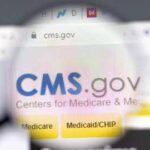“Maria” is a 54-year-old woman with seropositive rheumatoid arthritis, as well as hypertension and hyperlipidemia. She is a new patient in your clinic following a move across the country to live with her children on a farm in a rural area of the Midwest. At her first visit, three months ago, you and Maria agreed—through…








